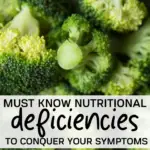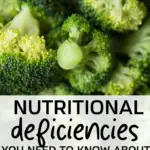The standard American diet based around convenience foods can be low in several vital nutrients. The U.S. Department of Agriculture estimates that 63% of the average calorie intake comes from processed foods. These foods are usually packed with unhealthy vegetable oils, sugars, and refined grains.
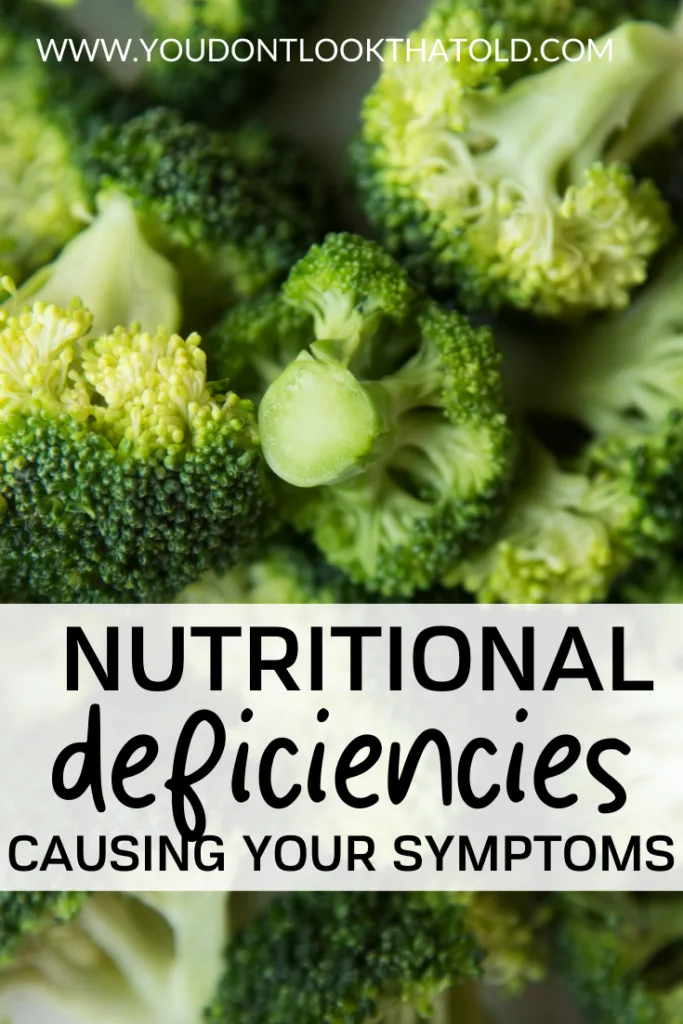
The high heat, pressure and refining processes used in commercial food manufacturing can also strip away nutrients from any natural ingredients used in the food product. As a result, many people are suffering from nutritional deficiencies despite getting more than enough calories on a daily basis. Here are 5 nutrients that may be lacking in your diet.
What are the essential nutrients?
- Vitamins – This nutrient assists the body in fighting disease. There are 13 vitamins – including vitamins A, C, B6, and D – the body needs to function optimally.
- Minerals – Essential for healthy body functions, building strong bones and teeth, regulating metabolism, and staying sufficiently hydrated. Common minerals are calcium, iron, and zinc.
- Protein – About 16% of the body’s weight is made from protein. This nutrient builds muscles and is found within every cell in the body (e.g. skin, hair, nails…)
- Fats – An important part of a healthy body, fats have a bad image. Fats are important for absorbing vitamins and minerals, muscle function, cell health, and blood clotting.
- Water – Over 60% of the body is made up of water. Water helps the body’s brain function and mood regulation. It also helps to prevent constipation and flush out toxins.
- Carbohydrates – Despite all the low carb craze, carbohydrates do play a role in a healthy body. They give your body – especially your nervous system and brain – energy and protect against disease.
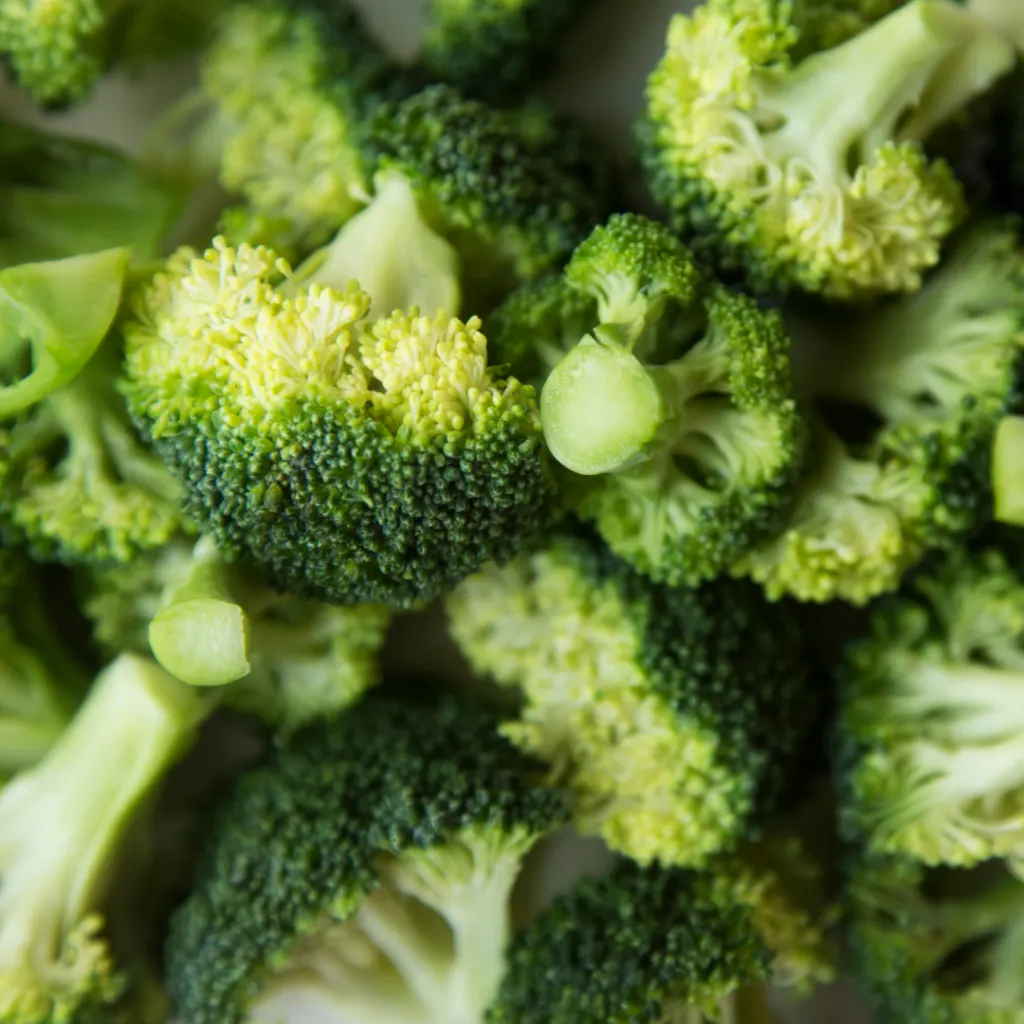
What is a nutrient deficiency?
Research shows that nutrient deficiencies can lead to cognitive impairment. Specifically, deficiencies in vitamin B12, thiamine, and niacin negatively impact cognitive impairment.
But, what does “nutrient deficiency” mean?
A nutritional deficiency occurs when the body doesn’t absorb or get from food the necessary amount of a nutrient. So, in many cases, if your body is not able to absorb iron, Vitamin D3, and so on, you will be deficient. Furthermore, the issue with bioavailability often points to a disequilibrium in the gut biome.
Vitamin Deficiency Symptoms
According to the Mayo Clinic, vitamin deficiency manifests in the following symptoms:
- Brittle nails
- Canker soars
- Bleeding gums
- Fatigue
- Shortness of breath
- Dizziness
- Pale or yellowish skin
- Dry skin
- Losing hair
- Restless legs
- Irregular heartbeats
- Weight loss
- Numbness or tingling in your hands and feet
- Muscle weakness
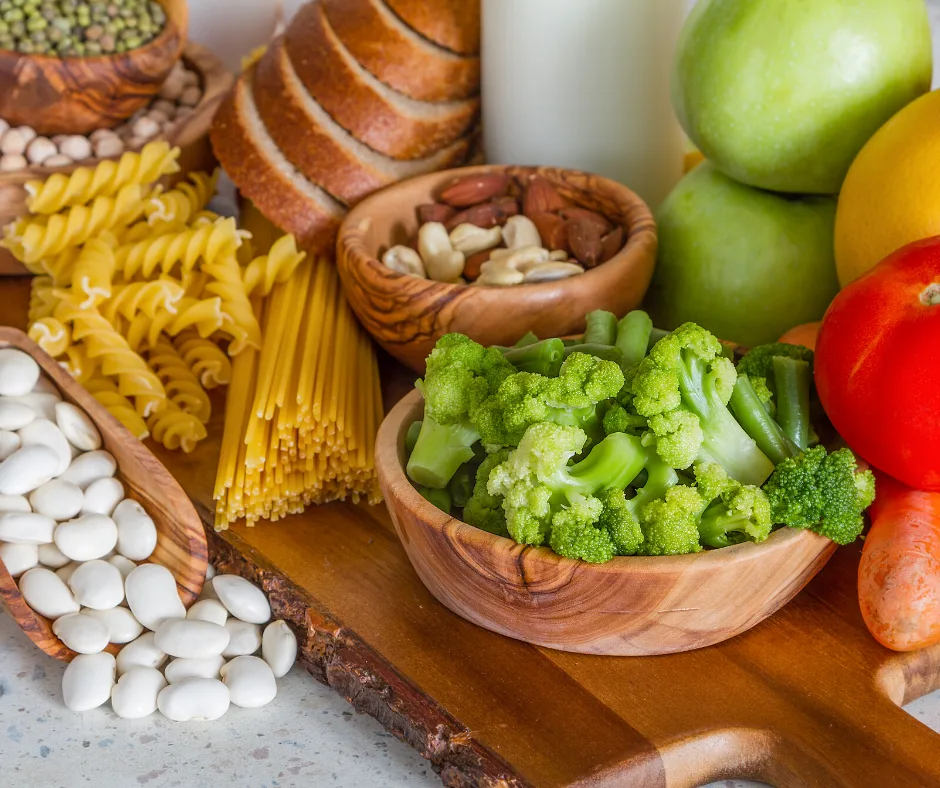
Common Nutrient Deficiencies
Vitamin D
It is estimated that about 42% of the US population is deficient in vitamin D. Your body produces this essential vitamin from cholesterol when your skin is exposed to sunlight. People in Northern climates with short, dark winter days are unlikely to get sufficient sun exposure between the months of October to March.
The only food rich in vitamin D is oily fish such as salmon and trout, so most people don’t get enough vitamin D from diet alone. Symptoms of vitamin D deficiency include muscle pain or weakness, bone loss, an increased risk of fractures and a weakened immune system.
If you can, spend time outdoors every day at or around noon and expose your skin to sunshine. If you can’t, consider taking an oral vitamin D3 supplement or cod liver oil capsules.
Omega-3
Omega-3 essential fatty acids reduce inflammation in the body whereas omega-6 essential fatty acids promote inflammation. The ideal omega-6 to omega-3 balance for health should be close to a 1-to-1 ratio. However, due to the prevalence of omega-6 oils in processed foods and fast foods, many Americans are consuming a ratio closer to 20-1. This sort of pro-inflammatory diet is linked to an increased risk for inflammatory diseases including allergies, arthritis, diabetes, heart disease, cancer, and dementia.
To correct the balance of essential fatty acids, you should aim to reduce your intake of omega-6 while increasing your intake of omega-3. Check labels on processed foods and avoid products containing sunflower, corn, soybean, cottonseed or safflower, and oils. Eat at least 2 servings of fatty fish per week or take fish-oil supplements. Vegetarians can take omega-3 supplements made from algae.
Iron
About 25% of the world’s population is deficient in iron, a mineral that is a large component of red blood cells. Iron is essential for producing hemoglobin, a protein that helps deliver oxygen to cells throughout the body. Women of childbearing age are especially vulnerable to iron deficiency due to monthly blood-loss through menstruation. There are two types of dietary iron: heme iron from animal foods and non-heme iron from plant foods.
Heme iron is easily absorbed by the body, whereas non-heme iron is less bioavailable. Vegetarians and vegans who only consume non-heme iron have a greater risk of iron deficiency than meat-eaters. Iron deficiency anemia occurs when the blood’s ability to carry oxygen is impaired due to a lack of iron. Symptoms include fatigue, shortness of breath, weakness and impaired brain function.
The best sources of heme iron are organ meat, shellfish, and red meat. The best sources of non-heme iron are dried legumes such as beans, peas, and lentils. Vitamin C can enhance the absorption of iron, so vegetarians and vegans should pair legumes with foods such as bell peppers, broccoli or kale. See your doctor if you suspect you are anemic and need iron supplements.
Vitamin B12
Vitamin B12 is available from foods of animal origin including meat, poultry, eggs, fish, seafood and dairy products. A few plants also contain this vitamin, but in very low levels and in a form that is not easily absorbed by the body. Some studies indicate that 80-90% of vegetarians and vegans are vitamin B12 deficient.
Among the general US population, around 40% of people have marginal B12 levels, which are low enough to produce some neurological symptoms. Chronic vitamin B12 deficiency leads to megaloblastic anemia, a blood disorder characterized by a low number of red blood cells. B12 deficiency can also cause muscle weakness, fatigue, impaired memory, depression and fertility problems.
If you are vegetarian or vegan, look for meat-substitute products fortified with B12 or take B12 supplements. Ovo-Lacto vegetarians and people who don’t regularly eat meat or fish should include eggs and cheese in their daily diet.
Magnesium
Almost half of the US population consumes less than the recommended amount of magnesium. This electrolyte mineral is required for nearly 300 enzymatic reactions in the body and supports nerve and muscle function. Many characteristics of modern life can contribute to the depletion of magnesium stores from the body including pharmaceutical drugs, high sugar consumption, consumption of diuretics such as coffee and alcohol and chronic stress.
Low magnesium levels have been associated with type 2 diabetes, osteoporosis and heart disease. Symptoms of magnesium deficiency include fatigue, weakness, migraines, muscle cramps or spasms, restless leg syndrome, anxiety, high blood pressure, and abnormal heart rhythms.
Magnesium is widely distributed in plant and animal foods but no single food will provide more than 20% of your daily requirement per serving. The best sources are nuts, green leafy vegetables, legumes, whole grains, and oily fish. If you choose to take a magnesium supplement to check the label. Magnesium oxide and magnesium sulfate are less well absorbed than magnesium citrate or magnesium chloride.
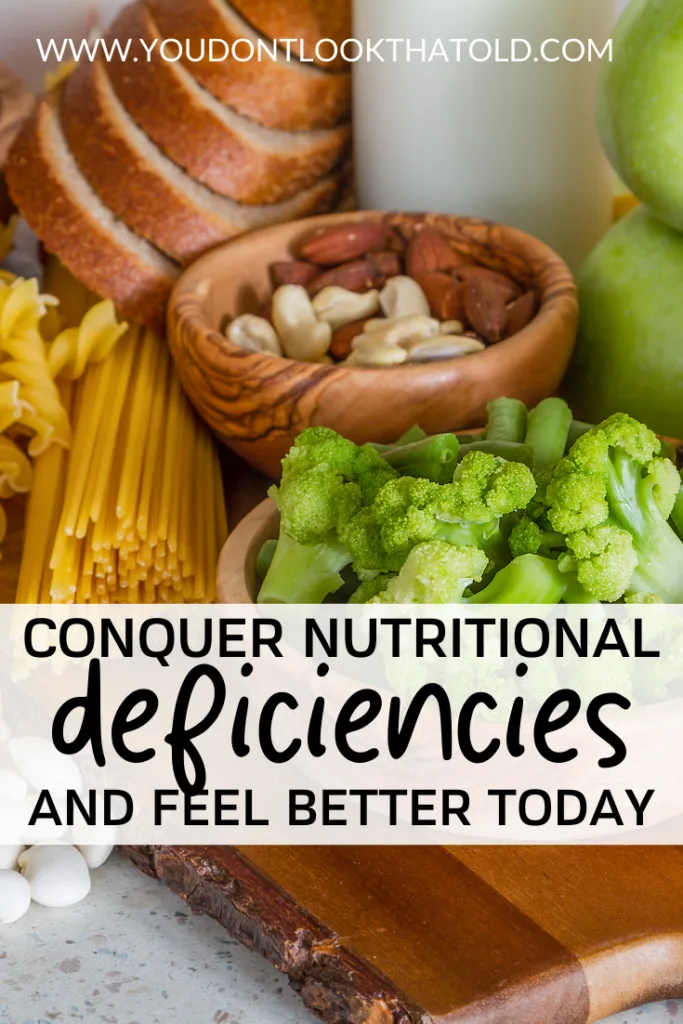
Nutrient-Dense Foods
- Avocados
- Chard, collard greens, kale, mustard greens, spinach
- Bell peppers
- Brussels sprouts
- Mushrooms (crimini and shiitake)
- Potatoes (white or sweet)
- Cantaloupe, papaya, raspberries, strawberries
- Yogurt
- Eggs
- Seeds (flax, pumpkin, sesame, sunflower)
- Beans (garbanzo, kidney, navy, pinto)
- Lentils, peas
- Almonds, cashews, peanuts
- Barley, oats, quinoa, brown rice
- Salmon, halibut, cod, scallops, shrimp, tuna
- Lean beef, lamb, venison
- Chicken, turkey
Related Read: Vitamins and Minerals to Improve Move
The best way to ensure you get all the nutrients you need for optimum health is to eat a varied diet consisting of nutrient-dense foods. Aim to fill half your plate with colorful vegetables and eat them with a source of protein. Snack on nuts or berries.
Avoid empty calories from highly processed foods, junk food, and fast food. If you don’t have time or energy to create healthy homemade meals from scratch, a daily multivitamin can help to safeguard you against nutritional deficiencies.

